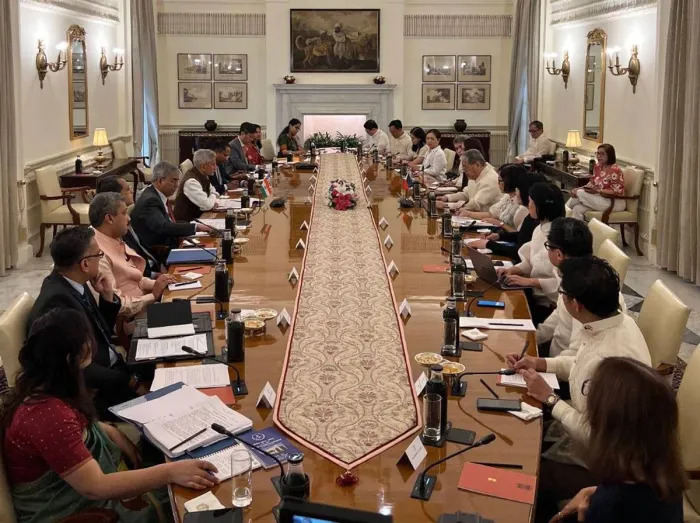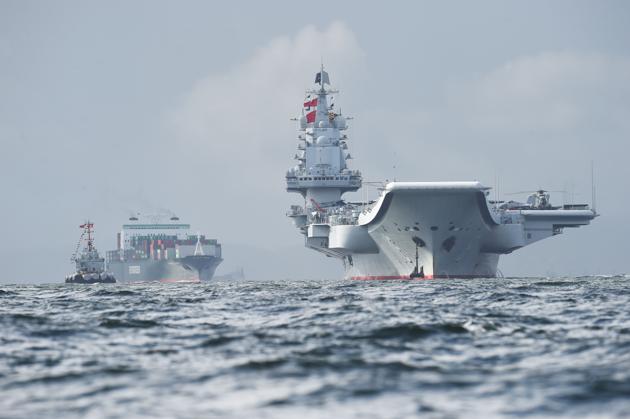India has undergone a notable shift in its stance regarding the 2016 arbitration award that invalidated China’s territorial claims in the South China Sea. In collaboration with the Philippines, India has explicitly called for adherence to the award, marking a significant departure from its previous cautious position. This change reflects evolving perspectives in New Delhi and Manila, as well as shifting geopolitical dynamics in the region.
India’s Changing Position
In July 2016, an arbitration tribunal under the UN Convention on the Law of the Sea ruled in favor of the Philippines, rejecting China’s aggressive actions in the disputed waters rich in oil reserves. Although China did not participate in the arbitration process and refused to acknowledge the ruling, India merely acknowledged the award at that time. However, during the recent Joint Commission on bilateral cooperation, India and the Philippines issued a joint statement explicitly urging adherence to the 2016 Arbitral Award on the South China Sea, signaling a shift in India’s stance. This evolution in India’s position was prompted by a request from the Filipino side.
Shared Interest in the Indo-Pacific
Both India and the Philippines have emphasized their shared interest in an open and inclusive Indo-Pacific region. They have stressed the need for peaceful resolution of disputes and adherence to international law, particularly the UN Convention on the Law of the Sea (UNCLOS) and the 2016 Arbitral Award. This marks the first time that a joint statement between India and the Philippines has directly called for adherence to the 2016 Arbitral Award, highlighting their growing alignment on regional issues.
Assertive Stance of the Filipino Government
India’s change in position coincides with a more assertive approach by the new Filipino government led by Ferdinand Marcos Jr., which assumed power in 2022. Filipino Foreign Secretary Enrique Manalo has emphasized that the arbitration ruling will serve as a foundation for the new government’s policies and actions in the disputed region. He reiterated the Philippines’ position during a speech in India, affirming that the award is considered final and binding by many countries, despite China’s refusal to recognize it. The Philippines views China’s activities in the South China Sea as a significant challenge but also acknowledges that bilateral relations extend beyond this issue.
India’s Growing Role and Collaboration with the US
Daniel Kritenbrink, the US Assistant Secretary of State for East Asia and the Pacific, has affirmed that the US sees an expanding role for India in the South China Sea and expects collaboration between Washington and New Delhi in this strategically important region. This coincides with India’s transfer of an active-duty missile corvette to Vietnam and the signing of an agreement with the Philippines for the sale of Brahmos missiles. China, however, has expressed concerns about India’s increased presence in the South China Sea in response to the US-India collaboration, stating that it could jeopardize stability and peace in the region.
Joint Statement Reflects Regional Concerns
The joint statement by India and the Philippines reflects their shared concerns regarding China’s longstanding territorial claims in the South China Sea. Both countries emphasized adherence to international law, particularly the UN Convention on the Law of the Sea, which governs the use of oceans and their resources, including the principle of freedom of navigation. By explicitly supporting the 2016 Arbitral Award, India and the Philippines join other nations in opposing China’s claims based on their respective territorial disputes in the region.

Continued Cooperation and Defense Engagement
India and the Philippines have pledged to further strengthen their bilateral partnership and expand cooperation across various sectors. In the defense realm, they have expressed keen interest in continuing collaboration, including joint exercises on maritime security and disaster response, acquisition of naval assets, and enhanced maritime domain awareness. India has offered a concessional line of credit to meet the Philippines’ defense requirements and agreed to station an Indian defense attaché in Manila. This deepening defense engagement underscores the growing ties between the two nations and their commitment to maintaining regional stability.
India’s explicit support for the 2016 Arbitral Award on the South China Sea marks a significant shift in its position and reflects the evolving dynamics in the Indo-Pacific region. The joint statement with the Philippines demonstrates a shared commitment to upholding international law and the importance of peaceful dispute resolution. As India takes a more assertive stance, China has expressed concerns about its extended presence in the region. Nevertheless, India’s increasing engagement and collaboration with the US and regional partners highlight its growing role and influence in the South China Sea.













